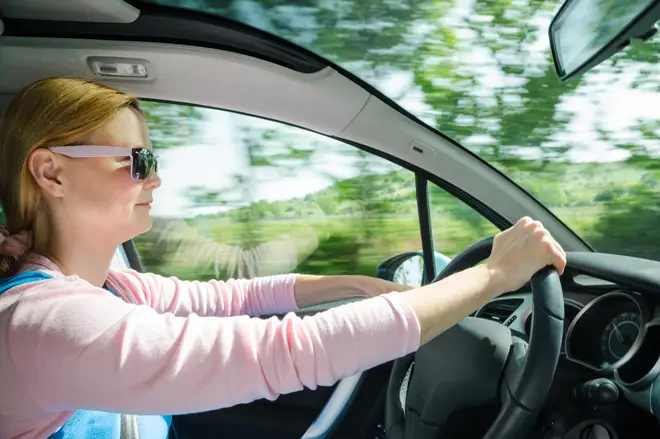On Air Now
Early Breakfast with Lindsey Russell 4am - 6:30am
15 July 2022, 10:25 | Updated: 5 October 2022, 12:03

Drivers have been issued a warning ahead of the heatwave to make sure they are wearing the right type of sunglasses.
Drivers could be hit with a £5,000 fine for driving with the wrong sunglasses.
With most of the country enjoying some of the hottest temperatures we’ve seen in years, experts are warning that bright sunshine could impair your vision.
Due to Rule 237 of the Highway Code, the ‘hot weather’ section states drivers should "slow down and if necessary, stop" if their vision is affected by bright sunlight.

Therefore, if a motorist chooses not to wear sunglasses, and doesn’t pull over when dazzled by sunlight, the police could charge them with careless driving.
This carries a £100 fine on the spot and means you could be hit with up to three penalty points on your license.
These fines can increase to £5,000 plus nine penalty points and even a driving ban if the case is taken to court.
Anyone that does decide to wear shades, it’s important to get the right pair so that they don’t obstruct your view enough for it to be considered dangerous.

For example, some lenses might be tinted too dark so you can’t see the road properly, while bulky frames can cause a blind spot.
According to Rule 97 of the Highway Code, “the clothing and footwear you choose to wear whilst you are driving must not prevent you from using the controls in the correct manner.”
Andrew Jervis from ClickMechanic said: "Many of us will welcome a few days of sun, but it could spell disaster for unprepared motorists.
"We all have a responsibility to drive with care and attention, and we need to be on alert for anything that can affect our ability to do that.
"Sun glare is often tricky to drive with as it can affect how we perceive the road conditions, while an unexpected short burst of light from behind a cloud can really harm our ability to see.”